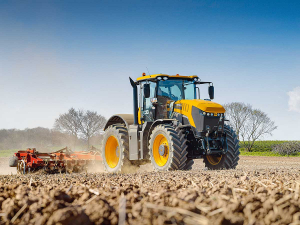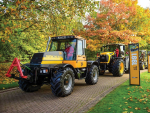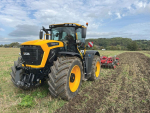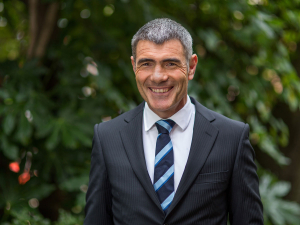JCB has extended its active front-and-rear axle suspension system to its flagship Fastrac 8000 series tractors.
The company says this provides greater stability and comfort while operating heavier equipment.
Originally developed for the 4000 series, the JCB Advanced Suspension is now fitted as standard equipment. This allows faster and more productive working speeds in the field and the stability and axle control required for high-speed road travel.
Operators can adjust the ride height of the front and rear axles independently to help balance the tractor, the hydraulic cylinder actuators can be set to maximum pressure to minimise axle movement, when undertaking operations such as buck raking on a silage clamp.
The new suspension system also sees the maximum permitted operating weight increase by 13% to 18 tonnes, allowing the use of larger implements, equipment or ballast. In addition, the rear deck capacity has doubled to five tonnes, making it a more practical proposition to mount seed or fertiliser hoppers and liquid fertiliser tanks.
The Fastrac 8330, rated at 335 hp and climbing to a maximum of 348 hp, is powered by the same 8.4-litre six-cylinder engine found on the previous models.
It is also equipped with DPF and SCR systems to comply with European Stage V emissions rules. Service intervals, have been extended to 600 hours, with a new engine auto-stop feature switches off the engine after a pre-determined period at idling speed to prevent unnecessary fuel use.”
Power and torque are channelled through a robust and durable CVT transmission that provides a selection of operating modes to suit different applications.
All Fastrac’s can be fitted with the latest VF ultra-flexible tyre options for improved load-carrying, traction and flotation and sustained travel at the machine’s legal road speed of 65 km/h.



















